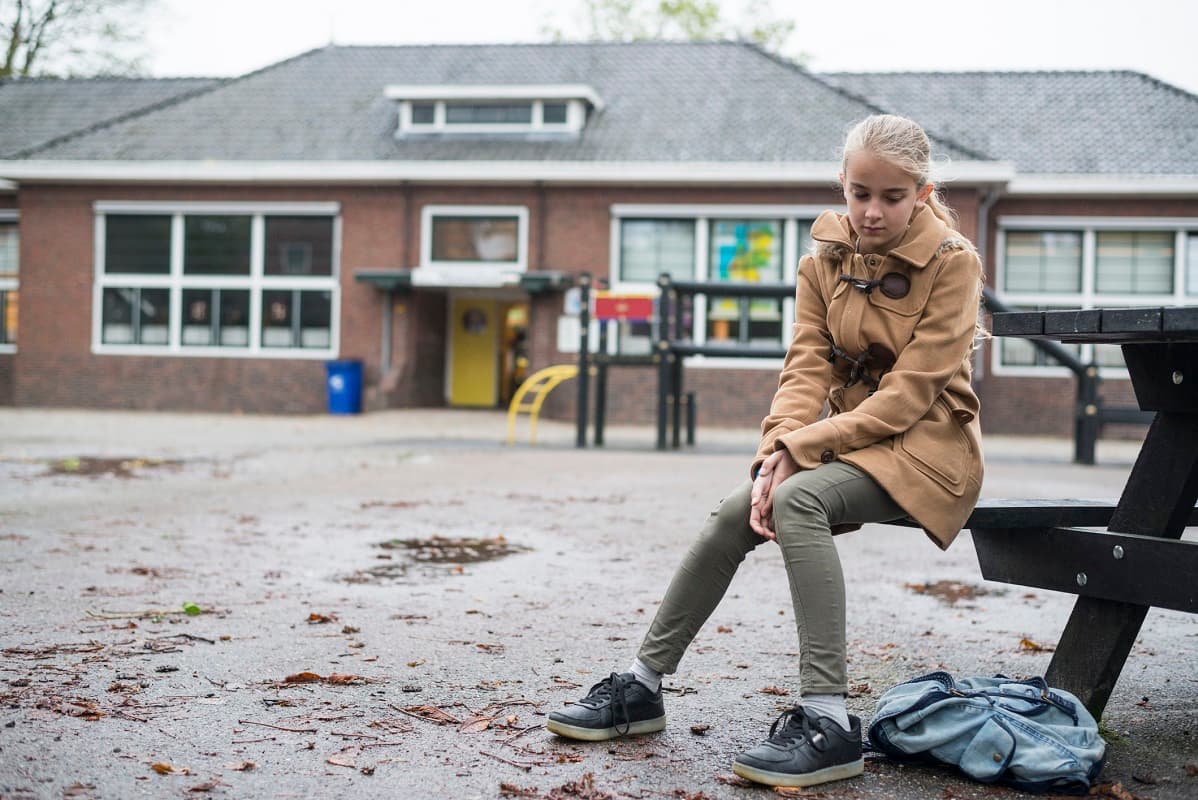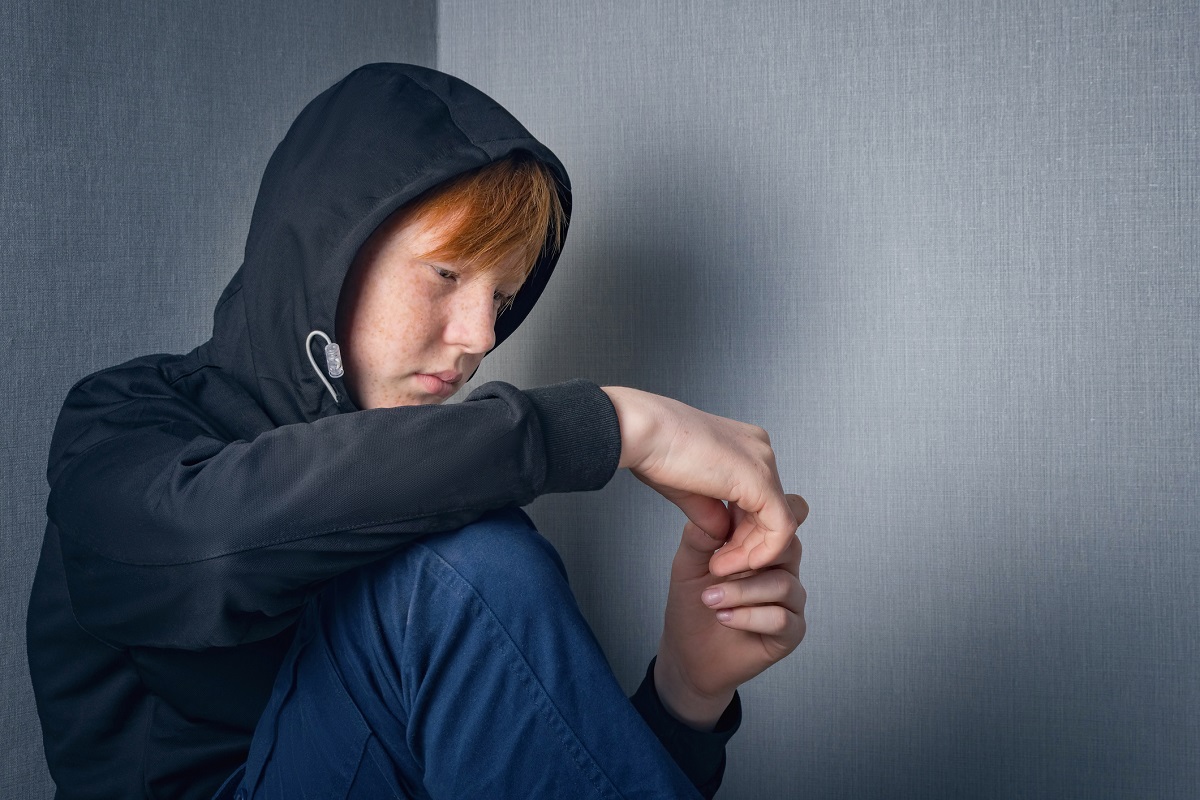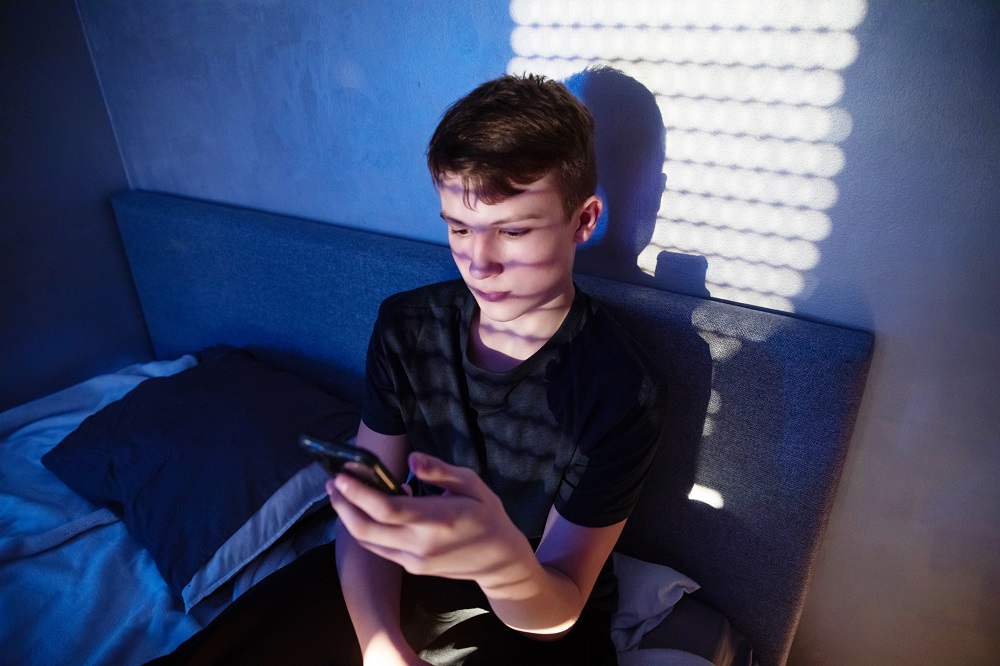Some kids may at some point say they don’t want to go to school – it’s a perfectly normal part of growing up, as they start pushing boundaries and want to develop their own independence and decision making. And it’s also natural for children to be anxious about school at certain points, like when they start a new year or have exams. But if they’re constantly upset and/or worried about going to school and this affects their overall wellbeing, this is different.
This is referred to as ‘emotionally-based school avoidance’ or EBSA. Here we look at what EBSA is and how you can help your child if they’re fearful or anxious about going to school.
What is emotionally-based school avoidance (EBSA)?
All children worry about school sometimes, particularly if they’re starting a new school or a new year, or have tests or exams. Our pages on helping your child with worries about primary school and starting secondary school have tips to help you calm their nerves.
Emotionally-based school avoidance is when your child experiences fear or anxiety about school, making it difficult for them to attend. Or they may be consistently arrive late, leave school early or avoid classes they find them particularly hard.
EBSA can sometimes be referred to as school avoidance, school refusal, school phobia, school-related anxiety and anxiety-related absence. This inability to go to school is based on high levels of anxiety and is not due to behaviour.
It can happen at any age, and it can be more common among children with additional support needs (such as dyslexia or neurodivergence), mental health needs, those who have been bullied or experienced trauma. It can be stressful for your whole family, and difficult to cope with, especially if you need to take time off work to look after them or take them to school.
Why is my child refusing to go to school?
There can be many reasons why your child may feel they can't go into school, including:
- feeling anxious about schoolwork
- problems fitting in or making friends
- problems relating to teachers and other staff
- issues at home affecting how they feel about school
- feeling unsafe
- not having their support needs met
- having mental health problems which makes school a hard place to be
- finding the environment overwhelming, frustrating or exhausting, particularly if they are neurodivergent.
It may be that a combination of different reasons are making your child feel overwhelmed, afraid or anxious.
Depending on your child’s age, they may not be able to tell you what’s bothering them at school, so it’s important to look for any signs. For example, have they just moved into a new class? Have they stopped talking about or seeing certain friends, or are they avoiding their phone all of a sudden? Are they worried about getting into trouble?
- If they’re having problems with their friends this page may help younger children and you can find advice for teens here.
- If you think something they’ve seen online may have upset them, our page on what to do if your child has a negative experience online may be of help.
- If you’re worried they’re being bullied, you can find information and advice on bullying here.
- If you think they may have additional support needs that aren’t being met (for example, if you think they may be autistic or have ADHD) our page on neurodivergence has further information and advice and signposts to sources of support. We also have advice on helping neurodivergent teens with anxiety here.
How do I know if my child is feeling anxious about school?
It may not be as simple as a point blank refusal to go to school. Other signs that your child may be feeling scared or anxious about school include physical, behavioural or emotional symptoms.
Physical signs (when there is no obvious cause):
- sore tummy, headaches or feeling sick or shaky
- tightness in the chest and throat
- changes in heart rate.
Behavioural signs:
- being unusually clingy or tearful
- having bad dreams, trouble sleeping or getting to sleep especially on week day nights
- a change in behaviour, either by becoming more withdrawn or acting out more
- changes in appetite
- not wanting to get up, get ready or go to school
- always seeking reassurance
- seeming restless and on edge
- not washing or looking after themselves as they usually would
- feeling able to do things at weekends or during school holidays, but really struggling during the school week
- not doing schoolwork or not managing to keep up with work at school
- starting to wet the bed
- showing a lack confidence to try new things or seeming unable to face simple, everyday challenges
- finding it hard to concentrate
- having angry outbursts.
Emotional signs:
- getting upset or stressed or crying when they’re getting ready to leave for school
- feeling fearful and scared
- being irritable and short-tempered
- feeling worried and sad
- having a lot of negative thoughts, or keep thinking that bad things are going to happen.
How do I tell the difference between everyday school worries and anxiety?
Most children and young people will feel worried about school at some point, whether it’s due to not getting on with their friends or the pressure of exams.
But just because they’re worried doesn’t mean they can’t attend school – often, going to school can help them feel better and ease any concern.
Missing school can lead them to falling behind with work and to feel left out from their friendship groups, which may make them even less likely to want to go in, and could result in them feeling even more anxious. Our tips for helping your child if they’re struggling to be in to school have advice for talking to them about their worries and strategies for reducing their worries. You can also find advice for supporting your child’s and teen’s mental health here.
However, if your child seems scared and anxious all the time about going to school and these feelings don’t go away, affecting their daily life, then you may need to take further action, like speaking to the school or to your GP.
School avoidance if your child has additional support needs
There are lots of different reasons why children may need a bit of extra support to help them make the most of their time at school. For example, they may need additional support if:
- they’re disabled or have a health condition
- they’re autistic or have dyslexia, ADHD or another neurodivergent condition
- they have a mental health condition, like depression or an eating disorder
- their first language isn’t English
- something upsetting has happened at home, like a family member going into hospital or dying
they’re caring for someone at home.
Children have a legal right to get additional support at school if it’s needed. So if you have any concerns about how your child is getting on at school or you feel that they need extra help with their learning, the best thing to do is raise this with your child’s teacher as soon as you can.
You can find lots of information about additional support at school on the Enquire website.
If your child is getting additional support at school but is still struggling and finding it hard to go in, speak to their teacher as soon as possible. The support they’re getting may not be meeting their needs, or their needs may have changed since the plan was put into place. The Enquire website has lots of advice about solving problems with additional support.
What are my rights if my child can’t attend school?
Whether your child is off school because of mental or physical ill health, it’s important to know that they have the right to an education and to the support they need. This means that the school must put measures in place to support your child’s mental health. It also means they should provide your child with a way to keep learning while they’re off. This will vary from school to school, but could include online learning.
The Enquire website has more information on what to do if your child is missing school due to anxiety or other mental health needs. They also have lots of information on attendance and exclusion you may find useful.
However, remember that you do need to let the school know when and why your child is off school. You can find out more about school attendance on the gov.scot website.
Getting help and support
As well as your child’s school and GP, there are lots of other organisations that can offer help and support.
- YoungMinds have more information about school refusal on their website and have a helpline and webchat and email service for parents.
- Enquire provides advice and information to parents and carers whose children need additional support for learning.
- Not Fine In School offers advice for parents and carers whose children are experiencing school attendance barriers. They have a Facebook group where you can share experiences and get support from other parents going through the same thing.
Looking after yourself
School avoidance can be really tough on everyone in the family. So make sure you’re looking after yourself as well as your family – you can’t help your child if you’re exhausted and upset yourself. Here are some tips to help – you can find more advice on the BBC Bitesize website.
Tip #1: Talk to other parents in a similar situation
This will help you feel less alone. Not Fine in School have a family support Facebook group you can join.
Tip #2: Don't be too hard on yourself
In these kinds of situations, it can be tempting to blame ourselves as parents or feel we’re not doing enough. So try to remember that by being there for your child and supporting them you’re doing so much to help them.
Tip #3: Keep talking to your partner
Keep communicating with your partner to make sure you’re agreeing on a course of action. If you’re a single parent, try to keep in regular contact with your child’s other parent, if that’s possible.
Tip #4: Try to have some fun
Try to plan in some fun activities with your child, and for yourself, to give you a chance to unwind.
Tip #5: Remember their mental health may need to come first for a while
Remember that their mental health, like their physical health, might need to come first – they can’t learn if they’re feeling constantly anxious and on edge. Being in school is important but try to focus on how to help them feel better and they will feel more able to cope in school. Get the support from school and other organisations that your child needs so they can manage what they can. And get support for yourself too – dealing with this kind of situation can be exhausting.
 Activities & Play
Activities & Play Behaviour
Behaviour Childcare
Childcare Development & Growing Up
Development & Growing Up Family, Friends & Relationships
Family, Friends & Relationships Feeding Your Baby
Feeding Your Baby Food & Eating
Food & Eating Health & Safety
Health & Safety Mental Health & Wellbeing
Mental Health & Wellbeing Money & Work
Money & Work Online Behaviour & Safety
Online Behaviour & Safety Pregnancy & First Days
Pregnancy & First Days School & Education
School & Education Sleep
Sleep











 Online Behaviour & Safety
Online Behaviour & Safety
 Mental Health & Wellbeing
Mental Health & Wellbeing